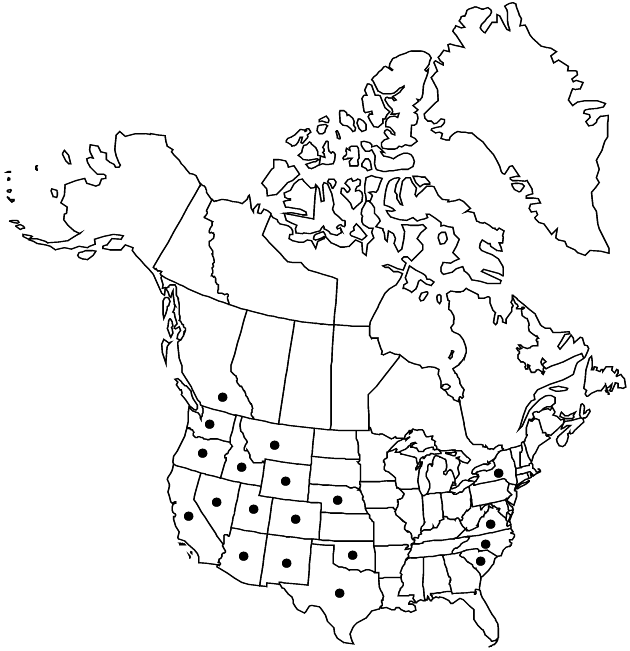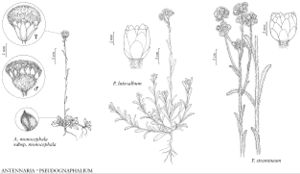Difference between revisions of "Pseudognaphalium stramineum"
Opera Bot. 104: 148. 1991.
FNA>Volume Importer |
imported>Volume Importer |
||
| (One intermediate revision by the same user not shown) | |||
| Line 8: | Line 8: | ||
}} | }} | ||
|common_names=Cotton-batting-plant | |common_names=Cotton-batting-plant | ||
| + | |special_status={{Treatment/ID/Special_status | ||
| + | |code=F | ||
| + | |label=Illustrated | ||
| + | }} | ||
|basionyms={{Treatment/ID/Basionym | |basionyms={{Treatment/ID/Basionym | ||
|name=Gnaphalium stramineum | |name=Gnaphalium stramineum | ||
| Line 76: | Line 80: | ||
|publication title=Opera Bot. | |publication title=Opera Bot. | ||
|publication year=1991 | |publication year=1991 | ||
| − | |special status= | + | |special status=Illustrated |
| − | |source xml=https:// | + | |source xml=https://bitbucket.org/aafc-mbb/fna-data-curation/src/2e0870ddd59836b60bcf96646a41e87ea5a5943a/coarse_grained_fna_xml/V19-20-21/V19_681.xml |
|tribe=Asteraceae tribe Gnaphalieae | |tribe=Asteraceae tribe Gnaphalieae | ||
|genus=Pseudognaphalium | |genus=Pseudognaphalium | ||
Latest revision as of 19:54, 5 November 2020
Annuals or biennials, 30–60(–80) cm; taprooted. Stems (1+ from base, erect to ascending) loosely tomentose, not glandular. Leaf blades (crowded, internodes usually 1–5, sometimes to 10 mm) oblong to narrowly oblanceolate or subspatulate, 2–8(–9.5) cm × 2–5(–10) mm (smaller distally, narrowly lanceolate to linear), bases subclasping, usually not decurrent, sometimes decurrent 1–2 mm, margins flat or slightly revolute, faces concolor, loosely and persistently gray-tomentose, not glandular. Heads in terminal glomerules (1–2 cm diam.). Involucres subglobose, 4–6 mm. Phyllaries in 4–5 series, whitish (often yellowish with age, hyaline, shiny), ovate to oblong-obovate, glabrous. Pistillate florets 160–200. Bisexual florets [8–]18–28. Cypselae weakly, if at all, ridged (otherwise smooth or papillate-roughened, glabrous, without papilliform hairs; pappus bristles loosely coherent basally, released in clusters or easily fragmented rings). 2n = 28.
Phenology: Flowering Mar–Oct.
Habitat: Sandy fields, streamsides, washes, swales, dunes, chaparral slopes, roadsides, fields, disturbed places, moist disturbed places
Elevation: 10–1600 m
Distribution

B.C., Ariz., Calif., Colo., Idaho, Mont., Nebr., Nev., N.Mex., N.Y., N.C., Okla., Oreg., S.C., Tex., Utah, Va., Wash., Wyo., Mexico, South America.
Discussion
Pseudognaphalium stramineum is probably native from South America to western North America; it is adventive in sandy fields on the Atlantic coastal plain, where it flowers May–Aug.
Selected References
None.
